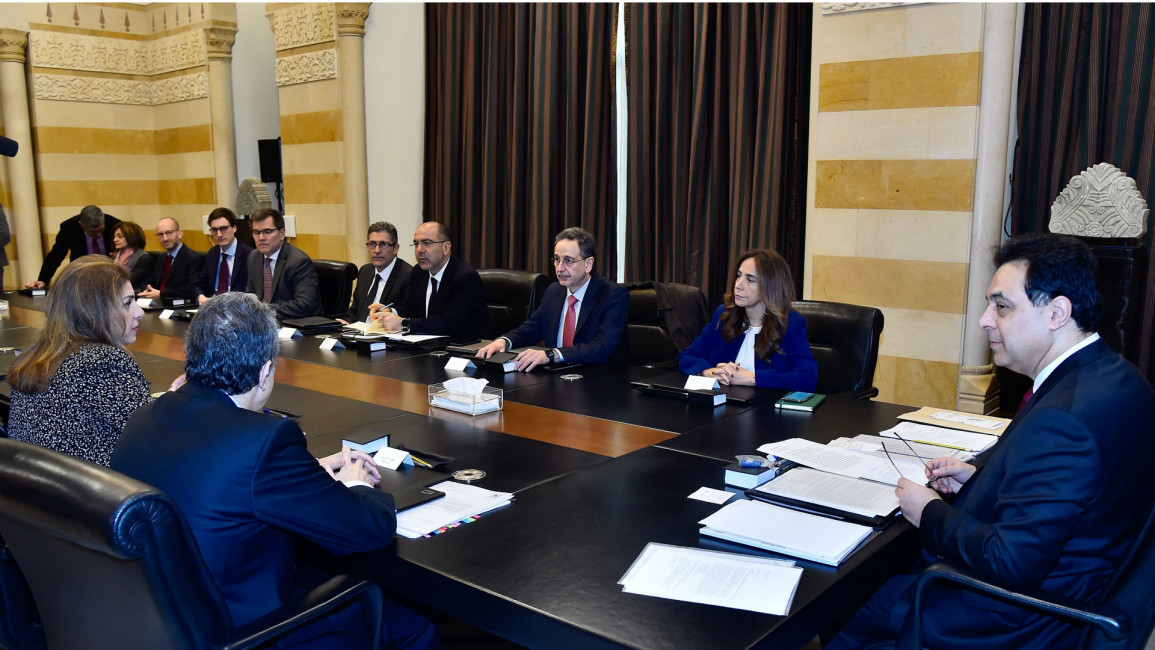Lebanon starts talks with IMF to rescue economy
Lebanon on Wednesday held talks with the International Monetary Fund aimed at securing financial aid desperately needed to save a crumbling economy, both sides said.
Lebanon is battling its worst economic crisis since the 1975-1990 civil war, now compounded by a coronavirus lockdown.
The Mediterranean country, which was hit last autumn by unprecedented protests, asked the IMF for financial assistance on May 1 after laying out a much-awaited financial rescue plan.
"The Lebanese government and the IMF wrapped up their first stage of discussions towards trying to reach a deal to set the Lebanese economy back on the right path," Finance Minister Ghazi Wazni said.
"We are satisfied with the atmosphere of these initial talks and hope the next ones will be just as constructive," he said of the video-conference meeting.
Under the rescue plan, the government will seek more than $10 billion in financial support on top of $11 billion in grants and loans already pledged by international donors in 2018.
Last week, Wazni said Lebanon would be seeking between $9 billion and $10 billion from the IMF.
President Michel Aoun said financial aid from the IMF was "mandatory" for an economic recovery.
Twitter Post
|
The global body said it had held remote meetings with Wazni and other officials.
They aim to reach "a comprehensive framework that can help Lebanon address the current challenging economic and social conditions and restore sustainability and growth," a spokesperson said.
The country's currency has plummeted in value on the black market in recent weeks, and some 45 percent of the population now live in poverty.
The rescue plan aims to reduce the deficit, restructure a colossal debt, and reorganise an oversized banking sector.
Lebanon is one of the most indebted countries worldwide with a debt equivalent to 170 percent of its gross domestic product. It defaulted on a repayment for the first time ever in March.
The country is also in the grips of a severe liquidity crunch, with depositors unable to make transfers abroad or withdraw dollars.
Read more: Lebanon's economic collapse: What happened?
Follow us on Facebook, Twitter and Instagram to stay connected



